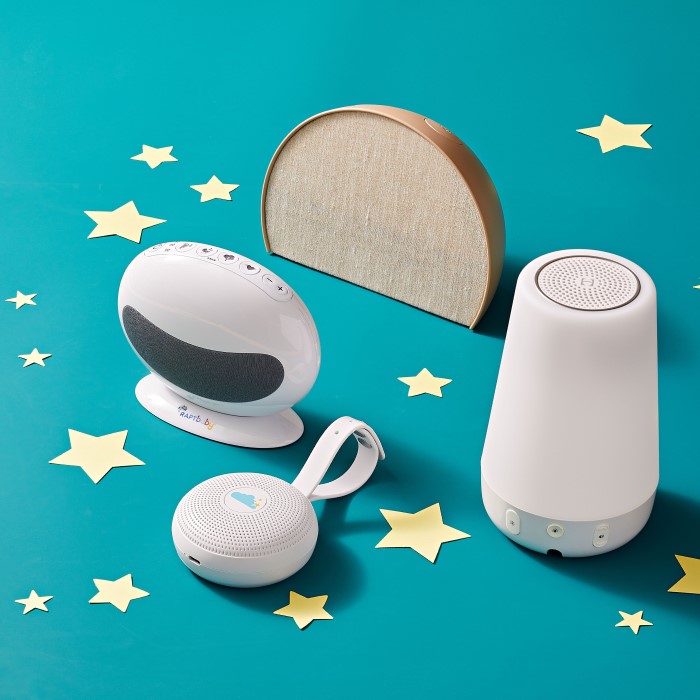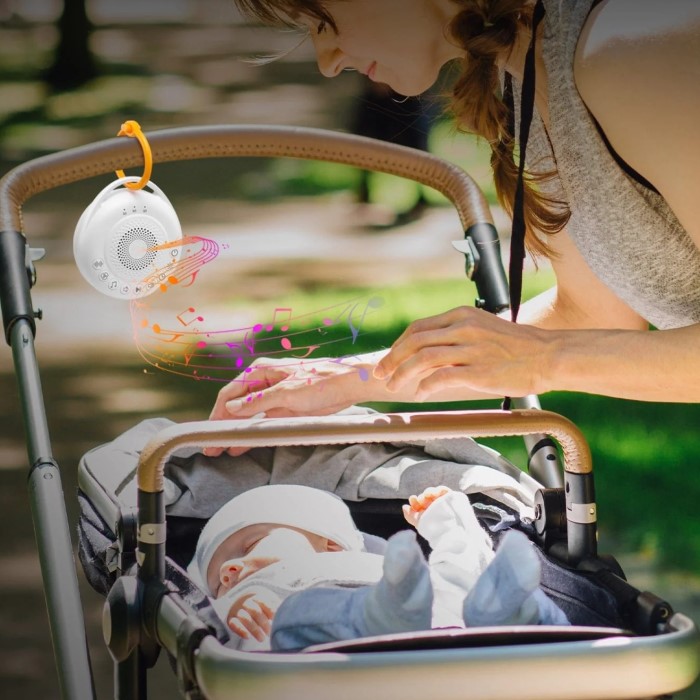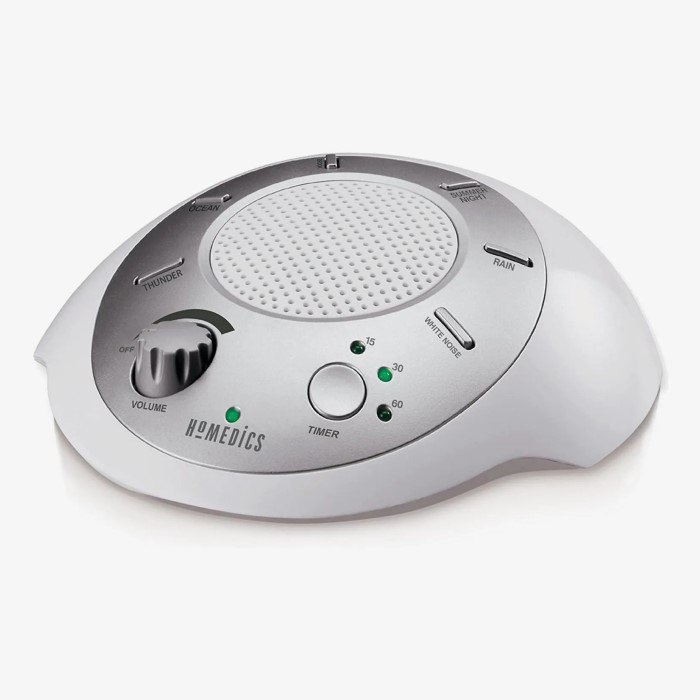Understanding the Importance of Sleep for Infants
Sleep is crucial for an infant’s growth and development. During the first months of life, babies spend up to 16-18 hours a day sleeping. However, achieving a peaceful sleep state may be challenging due to various environmental factors. Consequently, many parents seek solutions that help create a conducive sleeping environment for their little ones. One of the most effective solutions is the infant noise machine.
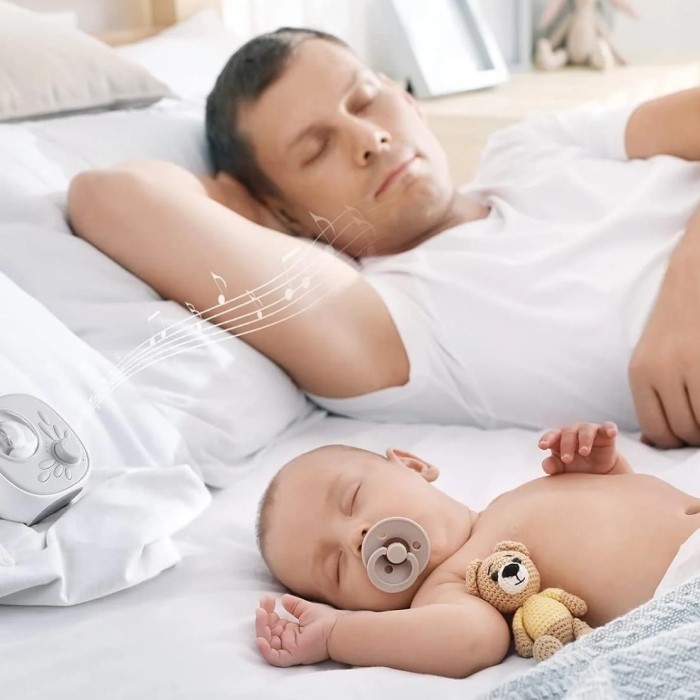
Infant noise machines generate comforting sounds that mask sudden noises in the environment. These sounds can help soothe babies to sleep by mimicking the familiar ambiance of the womb. White noise, in particular, is a popular option favored by parents and pediatricians alike for its calming effects.
How Does an Infant Noise Machine Work?
An infant noise machine produces a steady stream of sound that can range from soft hums to louder, more consistent noises. These sounds create a sound barrier that minimizes the impact of sudden, jarring noises such as door slams, dogs barking, or other household sounds. This is especially important for infants who can be easily startled awake by these disturbances.
Furthermore, the rhythmic nature of the white noise engages the baby’s auditory system, allowing them to focus on the soothing sound rather than the various distractions in their environment. As such, a well-selected noise machine can promote a longer duration of restful sleep for babies.
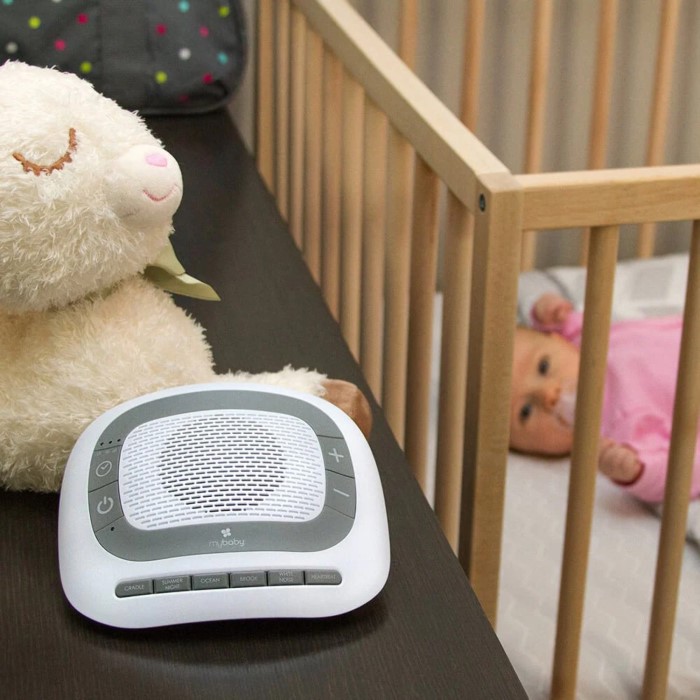
Why Choose an Infant Noise Machine for Baby Sleep?
Incorporating an infant noise machine into your baby’s sleep routine is beneficial for several reasons:
- Enhanced Sleep Quality: White noise helps stabilize sleep patterns and keeps babies calm.
- Improved Transition to Sleep: The consistent sound aids infants in falling asleep faster and staying asleep longer.
- Reduction of Disturbances: By masking household noises, the machine creates a serene sleeping environment.
It’s important to note that while an infant noise machine can be of significant assistance, it should be used correctly. Position the machine a safe distance from the baby’s crib and keep the volume at a safe level to protect their hearing.
Popular Types of Noises
When considering an infant noise machine, parents often wonder what type of noise is best for their baby. Here are some popular choices:
White Noise
- Definition: White noise is an even, consistent sound that encompasses all audible frequencies at the same intensity.
- Common Usage: It is the most frequently utilized sound type in infant noise machines, favored for its simplicity and effectiveness.
- Effectiveness: White noise effectively masks surrounding noises, such as traffic, voices, or other household sounds, creating a stable audio environment.
- Impact on Sleep: By providing a consistent auditory backdrop, white noise can help infants fall asleep faster and stay asleep longer, as it doesn’t draw attention like erratic noises.
Brown or Pink Noise
- Definition: Brown noise and pink noise differ from white noise in their frequency distribution. Brown noise emphasizes lower frequencies, while pink noise is more balanced across different frequencies.
- Popularity Among Parents: Some parents prefer brown or pink noise for their soothing qualities, believing these sounds to be gentler and less jarring for their babies.
- Soothing Qualities: The lower frequency tones of brown and pink noise can help create a deeper sense of calm, potentially leading to improved sleep for infants.
- Variations: The softer, more enveloping nature of these noises can promote a comforting atmosphere, making them excellent alternatives to traditional white noise.
Nature Sounds
- Definition: Nature sounds include a variety of ambient noises that mimic elements of the natural world, such as rainfall, ocean waves, forest sounds, or wind rustling through leaves.
- Calming Atmosphere: These sounds can help create a serene environment that promotes relaxation and tranquility, ideal for bedtime.
- Infant Relaxation: Nature sounds can effectively reduce stress and anxiety for some infants, making it easier for them to wind down and fall asleep.
- Variety: With many choices available, parents can select different nature soundscapes to see what best suits their child’s preferences and helps them relax.
Heartbeat Sounds
- Definition: Heartbeat sounds are recordings that simulate the rhythmic sound of a heartbeat, often resembling the noise a fetus hears while in the womb.
- Comforting for Newborns: For newborns, these sounds can evoke a sense of safety and familiarity, mimicking the environment they experienced before birth.
- Soothing Effect: The consistent, gentle thumping of heartbeat sounds can be incredibly soothing, helping to ease infants into sleep.
- Connection to Caregivers: Playing heartbeat sounds can also create a comforting bond for the baby, as it can remind them of the proximity of their caregiver and the nurturing environment they provide.
Ultimately, the best sound will depend on your baby’s preferences. Therefore, trying out different options can be helpful.
FAQs
Are noise machines good for babies?
Yes, studies have shown that noise machines can be beneficial for babies. They help drown out background noise and create a consistent auditory environment, which can lead to better sleep quality.
Is it okay to play white noise all night for a baby?
Playing white noise all night is generally safe. However, it’s essential to keep the volume at a reasonable level and position the machine away from the crib to prevent potential hearing issues.
What type of noise is best for babies?
While white noise is the most commonly used, others might prefer softer sounds like lullabies or nature sounds. The key is to observe which sound comforts your baby and helps them sleep.
What is the best noise machine for babies?
The best noise machine may vary for each family. Look for features like sound variety, portability, volume control, and timer settings. Some popular brands also offer smart features that allow you to customize sounds via an app.
Tips for Choosing the Right Infant Noise Machine
When selecting an infant noise machine, consider the following tips:
Sound Quality
- Definition: Sound quality refers to the clarity and richness of the audio produced by a noise machine.
- Importance of High-Fidelity Sound: High-fidelity sound machines reproduce natural and clear audio, which enhances the soothing experience for infants.
- Impact of Poor Quality: Machines with poor sound quality can produce distorted or harsh noises that may startle or irritate babies instead of calming them.
- Listening Experience: A machine with good sound quality can effectively mask disruptive background noises, contributing to a more peaceful sleep environment.
Volume Control
- Adjustable Settings: Seek out noise machines that feature adjustable volume controls to customize sound levels according to your baby’s needs.
- Finding the Right Level: Every baby is different; some may prefer softer sounds while others may respond better to higher volumes. Adjustable settings allow you to experiment.
- Importance of Comfort: Finding the optimal volume is essential for preventing discomfort. Sounds that are too loud can harm sensitive ears, while sounds that are too soft may not mask surrounding noise effectively.
- Dynamic Environments: Volume control becomes especially important in fluctuating environments, allowing parents to modify settings based on changes in background noise levels.
Portability
- Travel-Friendly Design: Consider noise machines that are lightweight and compact, making them easy to pack for trips.
- Convenience During Travel: A portable machine can help maintain your baby’s sleep routine, even when away from home, making it a crucial travel accessory.
- Battery Operation: Look for machines that can operate on batteries, ensuring you can use them in various locations without needing an electrical outlet.
- Multi-Purpose Use: A portable noise machine can also be used in different settings, such as at grandparents’ houses, hotels, or during family outings.
Timer Settings
- Functionality of Timers: Many modern noise machines include timer settings that allow you to set the duration for which the machine will operate before automatically turning off.
- Control Over Usage: Timer settings provide flexibility and control, enabling parents to manage when the machine should play sounds, ensuring it isn’t running unnecessarily.
- Battery Conservation: Using timer settings can help conserve battery life in portable machines, making them more efficient for longer trips.
- Promoting Healthy Sleep Patterns: By programming the machine to turn off after a certain period, parents can help encourage natural sleep patterns in their babies.
Safety Features
- Material Safety: Always check that the noise machine is made from non-toxic, baby-safe materials to prevent any health risks.
- Certifications: Look for products that have certifications indicating they have undergone safety testing and meet relevant standards for infant products.
- Electrical Safety: Ensure that the machine is designed with child safety in mind, including features like cord management to prevent strangulation hazards.
- User Reviews: Reading customer reviews can provide insight into the safety and reliability of the machine, helping to inform your purchase decisions.
By considering these factors, you can choose the right infant noise machine that suits your baby’s needs.
The Benefits of a Consistent Sleep Routine
In addition to utilizing an infant noise machine, fostering a consistent sleep routine can profoundly impact your baby’s sleep quality. Here are some elements to incorporate:
- Set a Bedtime: Establish a regular bedtime and stick to it to help regulate your baby’s internal clock.
- Create a Calm Environment: Dim the lights and reduce stimulus as bedtime approaches.
- Maintain Consistency: Consistent sleep cues, like reading a bedtime story or singing a lullaby, signal to your baby it’s time to sleep.
By combining these practices with an infant noise machine, you can guide your baby towards improving their sleep patterns and overall well-being.
In Conclusion
An infant noise machine can be your ally in promoting peaceful sleep for your child. By choosing the right noise machine and integrating it into a consistent sleep routine, you can foster an environment that comforts your baby. Amidst the hustle and bustle of everyday life, creating a soothing atmosphere will ensure that both parents and babies enjoy restful nights.
In today’s fast-paced world, prioritizing sleep is essential for your infant’s growth and development. Don’t overlook the benefits of an infant noise machine; it may well be the key to unlocking peaceful nights. As a parent, investing in your child’s sleep quality is one of the best choices you can make for their well-being.
By addressing the essential aspects of usage, benefits, and selecting the right machines, parents can effectively manage their child’s sleep environment, ensuring better sleep and overall development for their infants.
